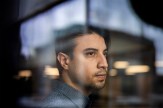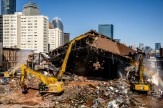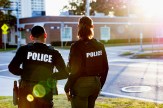How will Putin respond to Russian protesters?
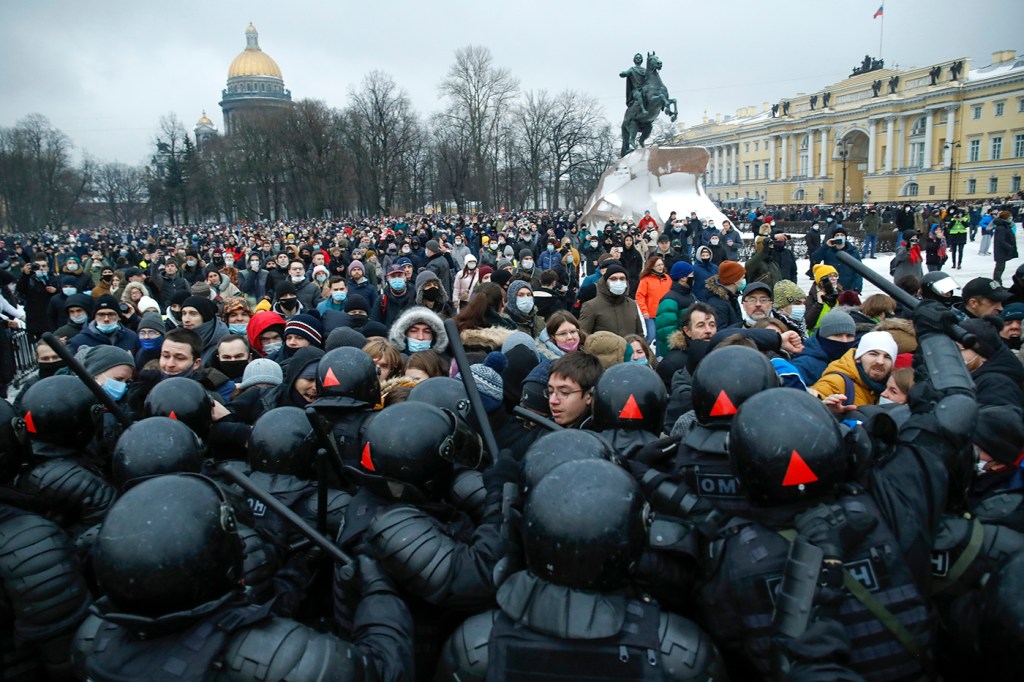
Five months after he was poisoned by a Soviet-era nerve agent, and certain that he would be arrested for his challenges to the authority of President Vladimir Putin, opposition leader Alexei Navalny returned to Russia in January. Last week, Navalny was sentenced to more than two and a half years in prison as protesters across the country took to the streets. Thousands have been arrested and detained.
Navalny’s courage and cleverness have cast him as the face of the protests. But the public dissent appears to be driven mainly by economic issues in Russia, including corruption, says Pablo Calderon Martinez, a lecturer in politics and international relations at New College of the Humanities in London, part of Northeastern’s global network.
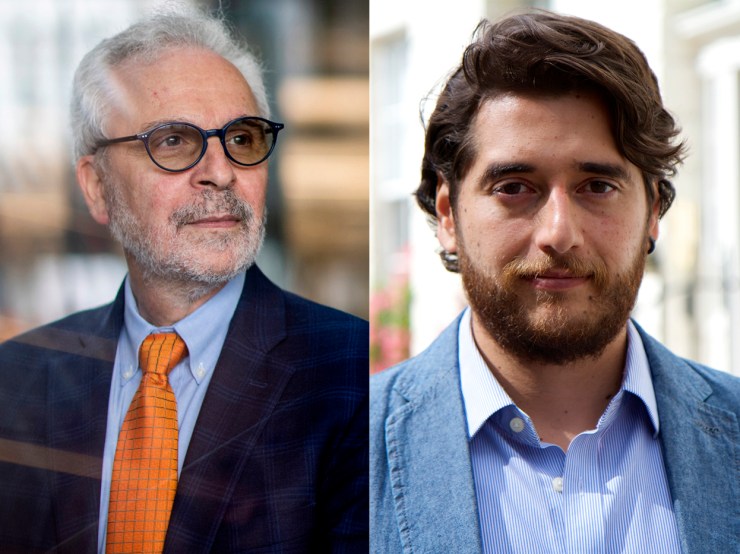
Left, Nikos Passas, a professor of criminology and criminal justice, and co-director of Northeastern’s Institute for Security and Public Policy. Photo by Matthew Modoono/Northeastern University. Right, Pablo Calderon Martinez, a lecturer in politics and international relations at New College of the Humanities in London. Courtesy photo
“Most of it has to do with economic uncertainty and pain,” Calderon Martinez says. “It’s not a coincidence that we see these things happening where there is a slowdown in the Russian economy and increasing inequality, particularly in the big cities.”
Over the past 14 years, Navalny has helped lead the opposition to Putin while creating the Russian Anti-Corruption Foundation. While Navalny, 44, was in Russian custody last month, his YouTube channel audaciously released a video that included drone footage of Putin’s palace on the Black Sea, worth an estimated $1.4 billion. The lavish complex appears to include a casino, two spas, a bakery, and a hookah lounge with a dancer’s pole—all financed under the table by Russian oligarchs and businessmen, according to Navalny.
Putin, 68, has denied that he owns the palace.
With his video, which has received 108 million views, Navalny has succeeded in telling a story of Putin growing richer while the Russian people struggle amid U.S. economic sanctions, the COVID-19 pandemic, and the global collapse of oil prices.
“The protests were not just about methods that the regime uses—they began to be about Putin himself,” says Nikos Passas, a professor of criminology and criminal justice, and co-director of Northeastern’s Institute for Security and Public Policy.
The protests erupted when Navalny was arrested on his return to Russia from Germany where he had been recovering since August from poisoning by the nerve agent Novichok. Even though he knew he faced arrest—a result of embezzlement charges dating back to 2013 that he said were meant to silence him—Navalny returned to Russia on Jan. 17.
The previous month, he released on YouTube a telephone recording in which he tricked a Russian agent into admitting that Putin’s Federal Security Service had placed Novichok in Navalny’s underpants. Putin has dismissed Navalny’s claims, arguing that Navalny is being supported by “the U.S. special services” and that Russia had no role in his poisoning. If Russian spies had chosen to take on the mission of killing Navalny, added Putin, “they would have probably finished it.”
Russian authorities have responded to the protests by banning all public demonstrations, which included an unprecedented Jan. 31 lockdown of the Moscow city center. Police have been seen beating or tasering peaceful protesters.
Navalny’s key aides, including his brother, have been arrested. But other movement leaders have continued to use social media to orchestrate public protests while offering advice on how to evade the police.
The Russian response is similar to the hard line taken in 2020 by security forces in Belarus following its fraudulent election, notes Calderon Martinez.
“These regimes learn from each other, and they learn what works,” he says. “We saw it in Belarus, we saw it during the Arab Spring and in Venezuela.”
Russia is willing to accept that its crackdowns on protesters will lead to international condemnation, says Calderon Martinez. But Putin also understands that the U.S., Europe, and other Western powers may lack the bandwidth to punish Russia at this moment when they are focused on curbing the COVID-19 pandemic and fixing their own economies.
“The lesson for these regimes is that they grind it out and hold on for as long as they can,” Calderon Martinez says. “For Putin, the number one goal is survival.”
Corruption becomes more noticeable and powerful in bad economies, notes Passas, whose areas of focus include corruption, sanctions, and international crime. He believes Putin might respond to the protests by taking moderate steps to spread more wealth throughout the larger economy.
“Redistributing a little bit less unequally the wealth makes the status quo more bearable,” Passas says. “Putin has shown that he is quite clever, and he does have extraordinary resources.”
But Passas adds that Putin will be prevented from taking too much money away from the oligarchs and others who have grown rich from their connections to his regime.
“Any kind of anti-corruption reform is going to encounter extraordinary resistance,” Passas says. “These are extremely powerful networks, and they’re not going to give up without a fight.”
For media inquiries, please contact Marirose Sartoretto at m.sartoretto@northeastern.edu or 617-373-5718.

